Orange Blossom Beekeepers Association
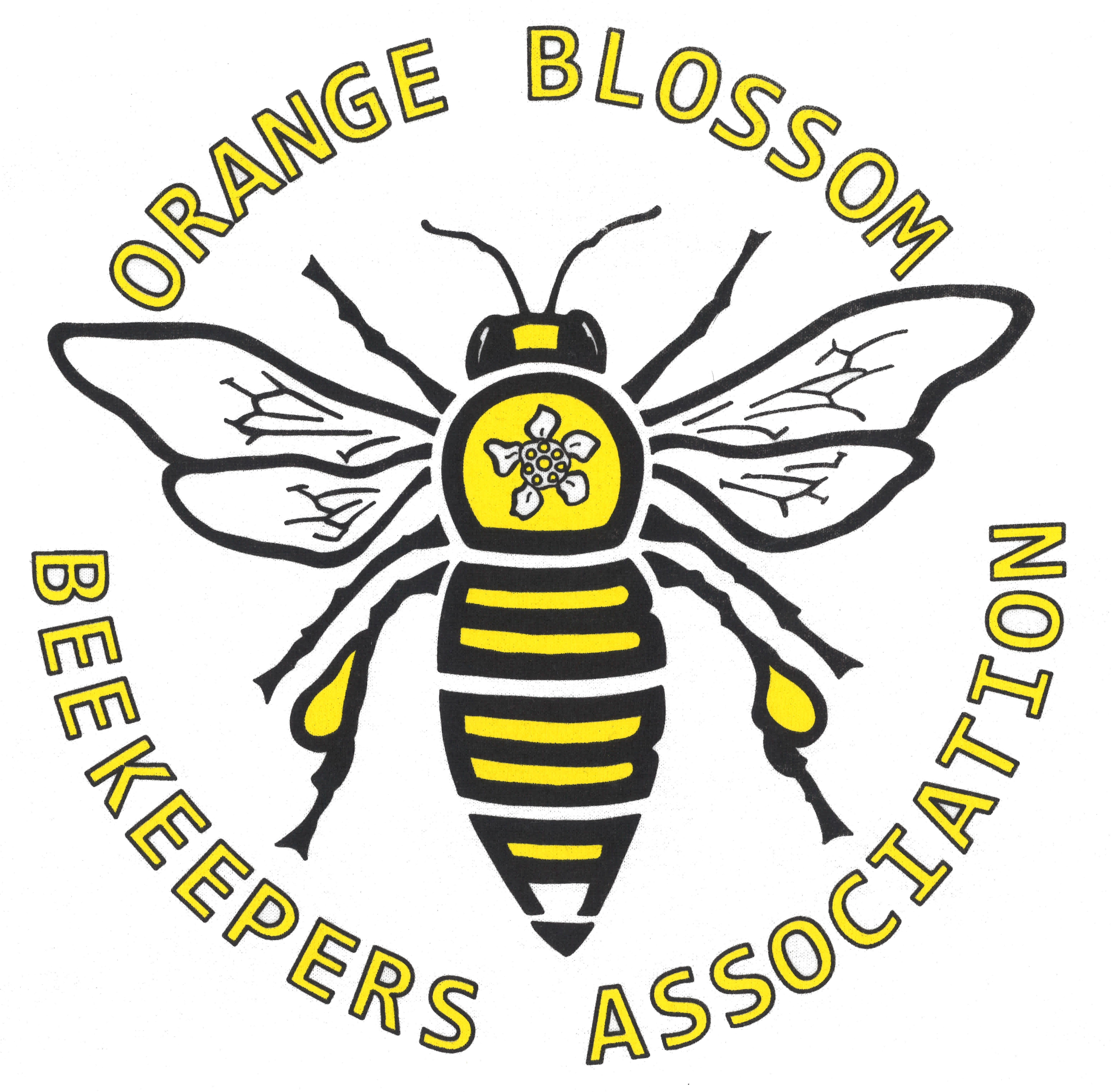
Monthly Meeting: November 18, 2021
OBBA Announcements
What's the buzz?
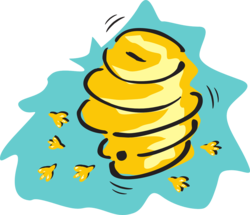
OBBA Workshop
Maybe on Saturday after Thanksgiving - Watch Slack for an announcement
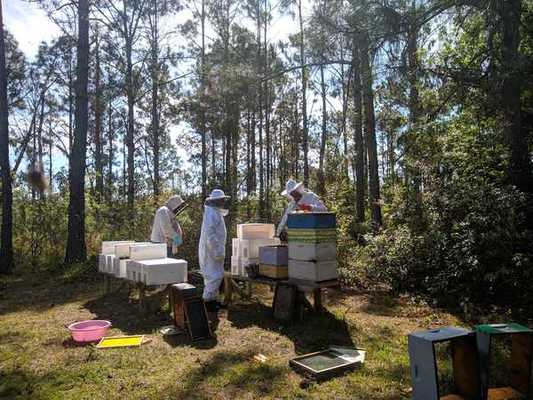
Honey For Sale
We have OBBA honey to purchase!
(Send Matt a message on Slack)
| Number (1 lbs) | Price |
|---|---|
| 1 bottle | $10 |
| 2 bottles | $18 |
| 3 bottles | $25 |
OBBA Website: orangeblossombeekeepers.org
- Online Event Calendar (obba-calendar)
- Online Membership Sign-up (join-obba)
- HoneyBeeWiki (wikibee)
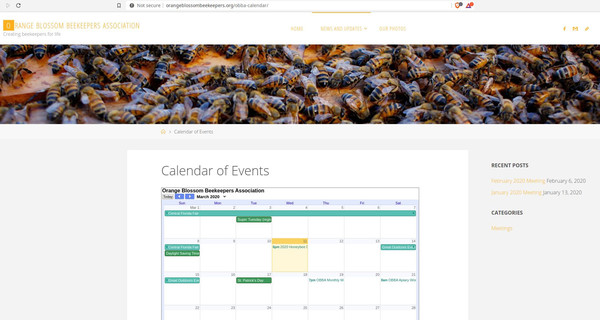
Facebook: OrangeBlossomBeekeepers

Instagram: OrangeBlossomBeekeepers

Slack: obba.slack.com

Looking Forward
- December
- With proposed eligibility requirements
- January Voting
- 2022 Plans/Ideas
- i.e. Honey Bee Day (August 20, 2022)
Nov/Dec Bee Management
Current UF Management Recommendations (Nov/Dec)
- Monitor colonies for varroa
- Consider treating colonies for Nosema (Fumagilin)
- Monitor for and control small hive beetles
- Feed colonies if light
What is blooming in Central Florida (Nov)
- Bush Aster
- Goldenrod
- Mexican Clover
- Primrose Willow
- Smart Weed
- Spanish Needle
- Spotted Mint
- Vine Aster
What is blooming in Central Florida (Dec)
- Bush Aster
- Goldenrod
- Mexican Clover
- Primrose Willow
- Spanish Needle
- Wild Radish/Wild Mustard
Planning for Winter (in Florida)
Surviving the winter - Winter Bee-havior
- Summer and into fall: Focus on building the essential honey reserves needed for winter
- Fall: Workers kick drones out of the hive since they don't help in any meaningful way and simply consume resources
- New brood is reduced
- Winter bees develop
- Temperature maintained for the queen by forming the winter cluster
Winter bees
- Workers that emerge near the end of the foraging season
- May live 6+ month+ (vs 6 weeks)
- Determine whether the colony survives winter
- Main difference: Presence of enlarged fat bodies in the abdomen
- (they do not look heavier)
Fat bodies
- Puts together, stores, and breaks down fats, proteins, carbohydrates, and other molecules
- Produce vitellogenin (allows a nurse bee to secrete brood food even in the absence of fresh pollen)
- Enhances the immune system
- Increases lifespan
Winter bees can be considered a caste
- Spend their lives within the nest
- Care for the queen
- Help with temperature regulation
- Raise the brood for the spring
Making a Winter Bee
- When pollen becomes scarce
- Raised by feeding a larva a lean (protein deficient) diet
- Dependent on local conditions
- Pollen, not temperature, regulates winter bee development
Vitellogenin
- A phospholipoglycoprotein - it has properties of:
- sugar
- fat
- protein
- A biomarker for honey bee health
Kicking Out the Lazy Ones (Drones)
An early sign of preparation for winter:
Eviction of drones
Forming the Winter Cluster
Worker bees huddle around the queen for the entire winter to keep her warm
- Workers toward the center of the cluster stay warm
- The cluster revolves
- All the workers take their time on the outskirts of the cluster
Threats: Moisture
- Condensation within the hive is
- Caused by warm conditions created by the cluster and the low ambient temperature
- The bees can be "rained on" inside the hive
- Fine balance between:
- Ventilation
- Ensuring cold air does not enter the hive
Threats: Temperature
Assuming sufficient honey reserves - the bees can take care of themselves well
Strong winds: Cold air finds nooks and cranny's
What about the Central Florida Winter?
- Bees are not able to fly very well when the air temperature falls below 55°F
- The warm temperatures keep the bees active all year long
- The temperature fluctuations are confusing to bees
- A nectar flow somewhere in the state at any given point
- Remember: Just because the bees are flying doesn’t mean they are producing
Assess Honey Stores
- Is the fall nectar flow sufficient to get your bees through the winter?
- Talk to local beekeepers
- If needing to feed:
- Sugar to water should be 2:1 or 5:3
Hive Preparation
- Extract honey
- Reduce down the hive
- Smaller hive = less drafty (and less likely pests, like mice, will enter)
- Look for your Queen
- Prep the surrounding area
Remove Unnecessary Bee Furniture
The bigger space, the harder it is to keep warm
- Turn hive from an auditorium to a little cabin
- Make sure the supers are off
- If small, move them to a nuc which is smaller, or combine them with another colony
- Remove queen excluders
Pests and Varroa Mites
- Do a mite count
- Treat proactively and relatively early
- Bears - Male bears may remain active all year
Let them bee
Most hives are lost in the winter because of freezing and starvation
Do not go through your bees in the winter
Stay Calm - All you can do is keep a watchful eye at a distance and try to help your bees if you see a problem when it is cold
Overwintering in Florida
- Entrance reducers: Help with warmth and hindering robbing
- Solid bottom boards: If temperatures get very low, it adds an extra layer of protection
- Check for nectar and honey stores early: Feed if needed
- Remove queen excluders: Allow the queen can move into the super if necessary
- Watch Varroa mite levels
Equipment Repair
Winter is a great time to fix, build, or paint things!
- Bottom boards
- Boxes
- Frames
- Covers
When does Spring start in Florida?
For bees in Florida, spring starts at the beginning of December/January with the first bloom of red maple
(Blueberry: Early February)
Stay involved, Stay connected
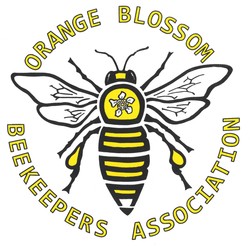
- OrangeBlossomBeekeepers.org
- Slack: OBBA.slack.com
- Facebook: Orangeblossombeekeepers
- Instagram: OrangeBlossomBeekeepers